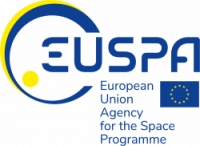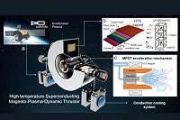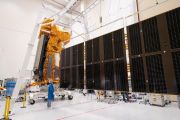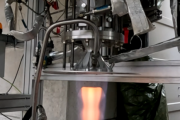EUSPA is the only European Union agency dedicated to space. Our unique mission is to serve as the essential link between space technology and user needs, translating the European Union’s investment in space into valuable, reliable services for European citizens.
EUSPA is responsible for operational management of the EGNOS and Galileo satellite navigation programmes and for ensuring the continuous provision of their services. This involves the management, operation, maintenance, continuous improvement, evolution and protection of the systems’ infrastructure, including upgrades and obsolescence management. The Agency is also responsible for developing future generations of the systems, the evolution of their services, and for activities related to th extension of their coverage.
Our responsibilities also include overseeing the operation of such key service facilities as the Galileo Security Monitoring Centre (GSMC) in France and in Spain, the European GNSS Service Centre (GSC) in Spain, the Galileo Reference Centre (GRC) in the Netherlands, the Galileo Control Centres (GCC) in Italy and Germany and the Galileo Integrated Logistic Support Centre (GILSC) in Belgium.
An important element of our work at EUSPA is to support the development of downstream and integrated applications based on Galileo, EGNOS and Copernicus, including through the Fundamental Elements funding mechanism and Horizon Europe. We also support the development of fundamental technological elements, such as Galileo-enabled chipsets and receivers, and provide the European Commission with expertise, including in preparing research priorities related to the downstream space market.
Another key part of our work is communications, market development and promotion of Galileo and EGNOS, and of the data, information and services offered by Copernicus, to promote user uptake of these data and services with a view to maximising their socio-economic benefits.
A core task for EUSPA is security of the EU Space Programme. This includes security accreditation of all components of the space programme, through the Security Accreditation Board. EUSPA is also responsible for the operational security of Galileo and EGNOS, which is provided through the Galileo Security Monitoring Centre, and for the provision and delivery of the Galileo Public Regulated Service for governmental users.
EUSPA has been entrusted with coordination of user-related aspects of the European Union Governmental Satellite Communications (GOVSATCOM), in close collaboration with Member States and other involved entities.
The EC may also entrust the Agency with tasks related to the Space Situational Awareness (SSA) programme, particularly regarding programme security and the delivery of Space Surveillance and Tracking (SST) services. In addition, the EC may entrust EUSPA with tasks related to the Quantum Communication Initiative (QCI) and the broader Secure Connectivity Initiative.
At the heart of our work at EUSPA are our efforts to support an innovative and competitive EU space sector, to ensure that space continues to drive innovation-based growth in Europe, delivering services and applications that meet the challenges that we face and supporting the implementation of priority EU policies.
European Union Agency for the Space Programme: Linking space to user needs
Space is essential to the way we live, work and play. EUSPA’s core mission is to implement the EU Space Programme and to provide reliable, safe and secure space-related services, maximising their socio-economic benefits for European society and business. By fostering the development of innovative and competitive upstream and downstream sectors and engaging with the entire EU Space community, EUSPA is driving innovation-based growth in the European economy and contributing to the safety of EU citizens and the security of the Union and its Member States, while at the same time reinforcing the EU’s strategic autonomy.
Content
The Regulatory Framework of the GSA
EUSPA Mission Statement
The mission of the European Union Agency for the Space Programme (EUSPA) is defined by the EU Space Programme Regulation. EUSPA’s mission is to be the user-oriented operational Agency of the EU Space Programme, contributing to sustainable growth, security and safety of the European Union.
Its goal is to:
- Provide long-term, state-of-the-art safe and secure Galileo and EGNOS positioning, navigation and timing services and cost-effective satellite communications services for GOVSATCOM, whilst ensuring service continuity and robustness;
- Communicate, promote, and develop the market for data, information and services offered by Galileo, EGNOS, Copernicus and GOVSATCOM;
- Provide space-based tools and services to enhance the safety of the Union and its Member States. In particular, to support PRS usage across the EU;
- Implement and monitor the security of the EU Space Programme and to assist in and be the reference for the use of the secured services, enhancing the security of the Union and its Member States;
- Contribute to fostering a competitive European industry for Galileo, EGNOS, and GOVSATCOM, reinforcing the autonomy, including technological autonomy, of the Union and its Member States;
- Contribute to maximising the socio-economic benefits of the EU Space Programme by fostering the development of a competitive and innovative downstream industry for Galileo, EGNOS, and Copernicus, leveraging also Horizon Europe, other EU funding mechanisms and innovative procurement mechanisms;
- Contribute to fostering the development of a wider European space ecosystem, with a particular focus on innovation, entrepreneurship and start-ups, and reinforcing know-how in Member States and Union regions.
Vision
EUSPA is the operational European Union Agency for the Space Programme. It adopts a user-oriented approach to promote sustainable growth and to improve the security and safety of the European Union.
Over the past twenty years, the European Union has been committed to creating an EU Space Programme and infrastructure that is competitive, innovative, and that delivers real benefits to citizens and business alike. Building on these foundations, the European Space Programme has made great leaps forward in recent years, delivering unique services in satellite navigation, Earth observation, and telecommunications, and strengthening both the upstream and downstream sectors.
As a result, space technology, data and services are indispensable to the daily lives of Europeans. They also play an essential role in supporting the strategic interests of the Union. Space-based services are ubiquitous - we all use them when we use our mobile phones. In addition, a growing number of industries and entrepreneurs look to space to develop solutions to the challenges we face in society. Nevertheless, at EUSPA we believe that we have just scratched the surface of the benefits that space can deliver. We see a future that is very close, where business and society will increasingly look to space as the resource of the future.
As the link between space and users, EUSPA’s ambition is to become the reference point for all space-related needs in the EU. EUSPA brings all space stakeholders together, allowing them to leverage the synergies of the Space Programme’s individual components to deliver the greatest possible benefits to European citizens and business. EUSPA plays a leading role in the EU Space Programme implementation. It promotes space-based scientific and technical progress and supports the competitiveness and innovative capacity of space sector industries within the Union, with a particular focus on small and medium-sized enterprises (SMEs) and start-ups.
The EU Space Programme and the services and applications that it supports, help to advance the European Union’s objectives and to achieve its key policy goals and priorities.
Values
Our values serve as a compass for all our actions and guide how we interact with the world.
- We care
We care about each other and the people we work with; we believe in European values and take our corporate social responsibility seriously.
- We are respectful and diverse
We value and respect people, the environment, the EU institutions and their roles; we encourage diversity and provide equal opportunities for all.
- We are professional
We continuously develop and improve our knowledge, processes, skills and competencies to deliver high quality, cost effective services with integrity and high ethical standards.
- We are innovative
We continuously search for ways to stimulate innovation in our work and the work of our partners to improve our performance and excel in our mission.
- We are reliable
Together, as one team, we are trusted partners to our colleagues across the Agency and to our stakeholders.
- We are accountable
We take responsibility for our work and reach decisions based on due diligence.
History
In 2021, in line with the new EU Space Regulation and the growing role of space in supporting EU priorities in terms of growth, competitiveness, sustainability, and security, the EU decided to expand the scope of the former European GNSS Agency (GSA) to include new responsibilities. This resulted in the creation of the European Union Agency for the Space Programme (EUSPA), which was officially launched on 12 May 2021.
EUSPA builds on the proven track record of the GSA. In taking on responsibility for various new Space Programme components, EUSPA leverages the GSA’s technical expertise, market intelligence, security know-how, and the extensive EU space-based community that it has built, to create synergies that will take EU space services and applications to a new level both in Europe and around the world.
The EUSPA story begins with the Galileo Joint Undertaking (GJU) set up in May 2002 by the European Community and the European Space Agency to manage the development phase of the Galileo Programme.
Two years later, the European GNSS Supervisory Authority (GSA) - the GSA's predecessor - was initially established as a Community Agency on 12 July 2004, by Council Regulation (EC) 1321/2004, status amended in 2006 by Council Regulation (EC) No 1942/2006. The European Council took this important step because it recognised the strategic value of Europe having its own independent satellite positioning and navigation programme, namely EGNOS and Galileo, and the need to ensure that essential public interests in this field are adequately defended and represented.
The GSA officially took over all tasks previously assigned to the GJU on 1 January 2007.
With Regulation (EU) No. 912/2010, which entered into force on 9 November 2010, and subsequently amended by Regulation (EU) No. 512/2014 of 16 April 2014, the GSA was restructured into an agency of the European Union named the European GNSS Agency (GSA).
The Regulatory Framework of the GSA
The main legal framework currently applicable to the Agency is available in the Register of documents, which you can find here.
Services
EUSPA’s mission is to link space to user needs and to achieve the highest return on European Space Programme investment in terms of benefits to users and EU economic growth and competitiveness.
To achieve this, EUSPA manages the Galileo and EGNOS programmes, develops markets for Copernicus services and data, coordinates user-related aspects of the GOVSATCOM programme, and carries out work in various areas targeted at Security, Research and Development and increasing space’s contribution to the EU Market.
EUSPA is also responsible for the security accreditation of all the components of the EU Space Programme.
Galileo
Since December 2016, Galileo has been providing safe and secure satellite navigation services worldwide for improved positioning, navigation and timing information. The Galileo system offers secure and performant services globally, including:
Open Service: a free mass-market service for positioning, navigation and timing.
Search and Rescue Service (SAR): this contributes to the SAR service provided worldwide by COSPAS-SARSAT, helping to save thousands of lives globally. On January 21th 2020, the SAR/Galileo Return Link Service (RLS) was declared operational, providing acknowledgement to people in distress that their signal has been received and that help is on the way. The RLS is a key Galileo differentiator.
Public Regulated Service (PRS) is an encrypted navigation service for governmental authorised users and sensitive applications that require high continuity. EUSPA actively contributes to the development of all areas of the PRS user segment to ensure that user needs are met, and supports a wide and secure use of PRS in compliance with PRS Decision 1104/2011.
Galileo will offer two additional services: the High Accuracy Service (HAS) and the Open Service Navigation Message Authentication (OSNMA). The HAS will complement the Open Service by providing an additional navigation signal and added-value services in a different frequency band; the HAS signal can be encrypted in order to control access to HAS services. The Galileo OSNMA is an authentication mechanism that will allow GNSS receivers to verify the authenticity of GNSS information, making sure that the data they receive are indeed from Galileo and have not been modified in any way.
EGNOS
The European Geostationary Navigation Overlay Service (EGNOS) is Europe’s first GNSS success story. Since being declared operational in 2009, the EGNOS Open Service has been successfully augmenting satellite navigation signal (GPS), enabling their use in safety-critical applications such as civil aviation. The Safety of Life service was declared operational in 2011.
EGNOS increases the accuracy of satellite positioning signals and provides a crucial ‘integrity message' that informs users in the event of signal problems. EGNOS is essential for applications where accuracy and integrity are critical. In addition to the aviation sector, EGNOS improves and extends the scope of GNSS applications in numerous market segments, including road, rail, maritime, surveying and mapping, location-based services and agriculture.
The next generation of EGNOS – EGNOS V3 – is currently under development. EGNOS V3 will improve the robustness and performance of the EGNOS services, including a second signal, and will augment Galileo in addition to GPS. Its gradual entry into service is planned to start in 2025.
Security
To ensure that these GNSS services are secure, EUSPA manages operations relating to the security of GNSS systems, including operating the Galileo Security Monitoring Centre (GSMC), ensuring the functioning of the Security Accreditation Board of the EU GNSS systems, securing the Galileo Public Regulated Service and developing the PRS user segment.
EUSPA is responsible for the security accreditation of all the components of the EU Space Programme.
Research & Development
EUSPA actively supports the development of innovative European products and applications based on Galileo, EGNOS, and Copernicus services. The Agency is in charge of managing Horizon 2020 projects to develop solutions that demonstrate the clear advantages of these services in meeting the needs of different market segments.
In 2021-2027, EUSPA will also manage Horizon Europe, and will continue its efforts to support commercial solutions leveraging Galileo, EGNOS and Copernicus, as well as synergies between them. The goal is to foster the development of EGNSS and Copernicus applications in support of the European Green Deal, safety and crisis management, and digitalisation, as well as to push forward Smart Mobility, public adoption of Galileo and Copernicus, and promote use of GOVSATCOM.
The Agency also funds GNSS-based innovation through its Fundamental Elements (FE) Programme, an R&D funding mechanism supporting the development of chipsets and receivers. Fundamental Elements projects are part of EUSPA’s overall strategy for European GNSS market uptake. The programme leverages innovative EGNSS services and differentiators to address user needs in priority market segments. In so doing, it improves the competitiveness of EU industry and maximises benefits to European citizens. Many projects funded under the first FE envelope in 2014-2020 are still ongoing. The new FE plans for 2021-2027 are currently being defined.
EUSPA also supports the entrepreneurial ecosystem by nurturing emerging start-ups throughout the innovation life cycle, improving their access to private funding through investments and matchmaking with industrial partners and investors. A key role here is played by various entrepreneurship initiatives, hackathons, competitions, development programmes, networking initiatives and investors events. New prizes and competitions will also be part of Horizon Europe, in line with the Cassini entrepreneurship initiative.
Contribution to the EU Market
The global GNSS downstream market is growing rapidly. The latest GSA GNSS Market Report forecasts that the installed base of GNSS devices in use will reach 9.5 billion by 2029, with global GNSS downstream market revenues from devices and services set to exceed EUR 324 billion by the same date. European companies account for approximately 27% of the overall global GNSS market and, of the 1.7 billion GNSS units shipped in 2019, more than 40% were Galileo-enabled, a remarkable result for the European GNSS programme.
The 2019 Copernicus Market Report predicts economic benefits from the Copernicus programme of up to EUR 21.3 billion in 2008-2020 (not including non-monetary benefits). Based on information from the European Association of Remote Sensing Companies (EARSC), Earth observation revenue reached EUR 1.38 billion in 2020. EU companies are responsible for a third of the global EO market revenue and this share is expected to grow. There are currently more than 570 EO companies in the EU, of which more than 90% use Copernicus data.
Galileo, Copernicus and EGNOS support industries far beyond what we normally tend to think of as ‘space based’. The downstream industry for GNSS includes component manufacturers that produce receivers, chipsets, antennas and safety beacons. It includes system integrators that integrate GNSS capability into larger products, such as vehicles and consumer electronics. It also includes value-added service providers that improve access to and use of GNSS, including map providers and augmentation service providers. Meanwhile, the agriculture, marine and renewable energy sectors are driving the use of Copernicus data and services. Small-scale farmers, forest owners, shipping companies and solar panel providers increasingly rely on Copernicus data and services to monitor current conditions and understand long-term trends. Start-ups and SMEs are also eagerly seizing upon opportunities to develop services using GNSS and Earth observation to create a wide variety of applications for the growing global app community.
Innovation plays a key role in driving economic growth and sustainability in the European Union. The European space programme offers huge potential in this context, as an engine of innovative growth in a number of sectors: LBS, transport, surveying, agriculture, and timing and synchronisation. Likewise, Copernicus data is being leveraged in multiple value-added services that respond to specific public or commercial needs, resulting in new business opportunities.
Finally, GOVSATCOM may generate up to 5,000 jobs in the EU and the programme offers huge potential as an engine of innovative growth in a number of sectors. This will enable the EU to lay claim to a growing share of the global market for SatCom services, which is estimated to reach EUR 126 billion by 2025, and of the SatCom equipment market, which is projected to increase to EUR 25 billion by 2022.
GOVSATCOM
The European Union Governmental Satellite Communications (GOVSATCOM) initiative is being set up in response to new emerging security threats and risks. The programme aims at providing secure and cost-efficient communications capabilities to security and safety critical missions and operations managed by the European Union and its Member States, including national security actors and EU Agencies and institutions. The three main GOVSATCOM use cases are crisis management, including maritime emergency, humanitarian aid, civil protection, etc.; surveillance, such as border and maritime surveillance; and key infrastructures, such as transport infrastructure, EU space infrastructure, and other critical infrastructure.
Copernicus
Copernicus is the European Union's Earth observation programme, looking at our planet and its environment to benefit all European citizens. The programme consists of a complex set of systems that collect data from multiple sources. Copernicus services address six thematic areas: land, marine, atmosphere, climate change, emergency management, and security. They support a wide range of applications, including environment protection, management of urban areas, regional and local planning, agriculture, forestry, fisheries, health, transport, climate change, sustainable development, civil protection, and tourism.































































